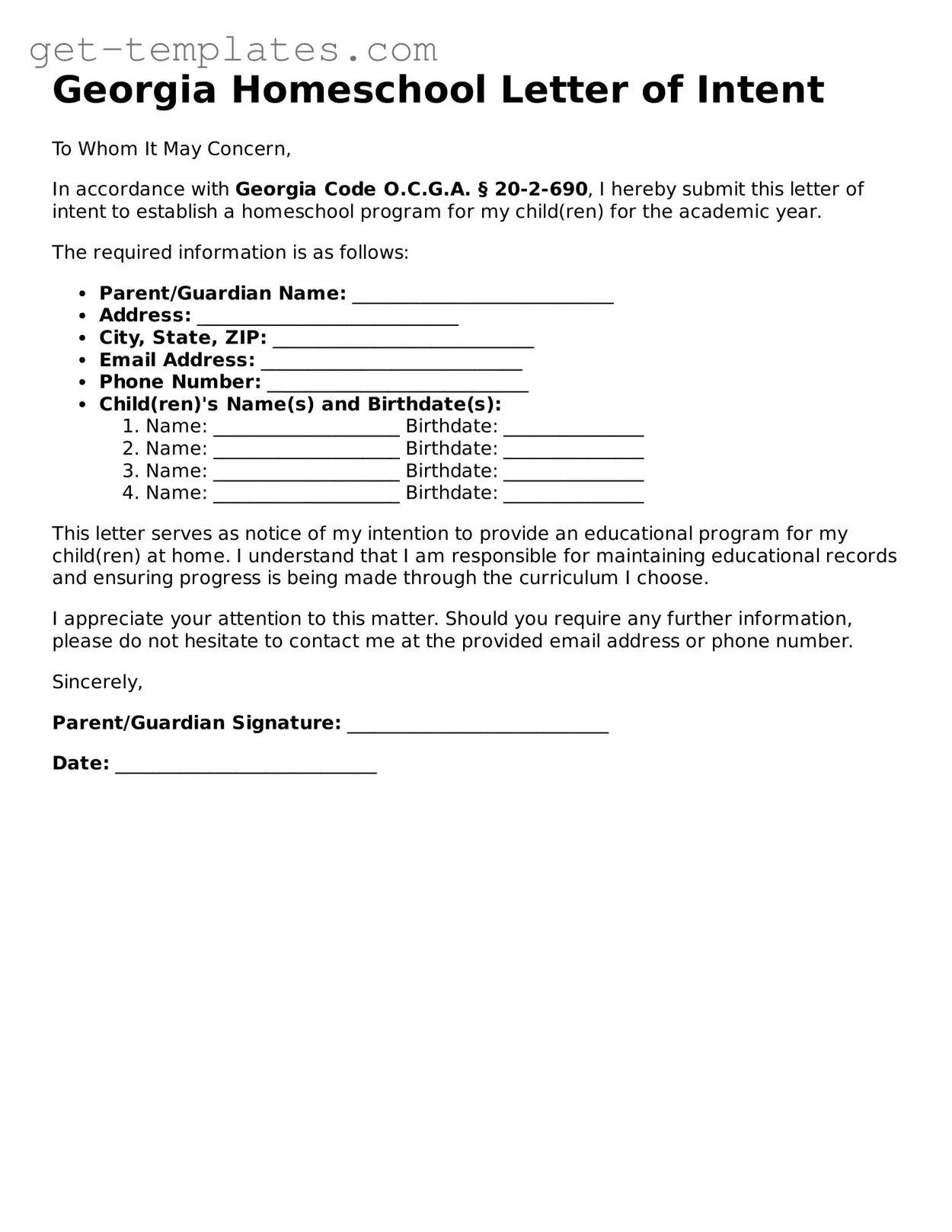Attorney-Approved Homeschool Letter of Intent Document for Georgia
The Georgia Homeschool Letter of Intent is a formal document that parents or guardians submit to notify the state of their intention to homeschool their children. This form is an essential step in the homeschooling process, ensuring compliance with Georgia's educational regulations. Understanding how to properly complete and submit this form is crucial for families embarking on their homeschooling journey.
Get Document Online

Attorney-Approved Homeschool Letter of Intent Document for Georgia
Get Document Online
You’re halfway through — finish the form
Finish Homeschool Letter of Intent online — edit, save, download made easy.
Get Document Online
or
⇓ PDF Form
